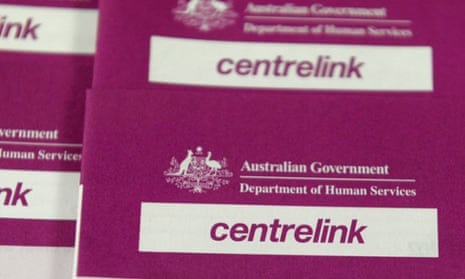A Senate inquiry into the social services bills, which introduce most of the government’s welfare reforms, has led to two dissenting reports being tabled.
The Liberal-dominated inquiry recommended the bills be passed with no amendments, but Labor recommended the removal of 11 proposals and the Greens’ report said both bills should be denied passage through the Senate. The Greens said a separate bill introducing elements of the government’s budget proposals should be created.
The Senate’s community affairs legislation committee recommended the bills be passed unamended on Friday, despite acknowledging a range of concerns raised in submissions.
The bills introduce six-month waiting periods for unemployment benefit, taking under-30s off income support for months at a time, reviewing certain people who are under 35 and on the disability support pension (DSP), denying income support to students and DSP recipients who travel overseas for particular periods without a valid reason, changing Family Tax Benefits A and B and raising the pension age.
“While participants expressed support for the broad intent of a number of the measures in the bills, they also highlighted concerns around potential unintended consequences of some measures and argued that these may have a disproportionate impact on vulnerable members of society,” the committee’s report said.
It said submissions focused on the proposed “earn or learn” proposals for young jobseekers, support for people with a disability, indexation measures and income test deeming thresholds, family payment reforms, age pension and related changes and education and training support.
It said the “broad intent” of the bills was supported by submissions, citing the Brotherhood of St Laurence, which supports “a mutual obligation system that has high expectations of job seekers, including penalties for those who wilfully fail to meet obligations”.
On the proposed work-for-the-dole program and mandatory waiting periods for income support, the committee’s report acknowledged “submitters also expressed concern that the measures may not strike the appropriate balance between obligations and assistance and may impose harsh unintended consequences on many young Australians”.
The Australian Council of Social Service (Acoss) and Young Opportunities Australia told the inquiry the bill would undermine the basic principle of Australia’s welfare system and questioned the effectiveness of the work-for-the-dole program.
The report concluded those measures were “intended to provide incentives for young unemployed Australians to either acquire employment or the required skills to obtain gainful employment”.
Carers Australia told the inquiry the review of the DSP for some under-35s did not take into account people who had episodic conditions, such as epilepsy or mental illness, which meant they could work at some times but not others.
Acoss and the National Welfare Rights Network were concerned the bill was unclear about the penalties or impacts of the proposed changes to the DSP.
“The committee notes that this initiative should result in improved opportunities for employment participation for people with a disability,” the report says.
“DSP is intended to provide support to people who are prevented from working or being retrained for work because of an ongoing impairment. The committee concurs that long-term dependence on DSP is not the best outcome for people who have skills and capacity to participate in the labour market, or who are able to build such skills with appropriate assistance.”
The committee was made up of four Liberal party members, Zed Seselja, Sue Boyce, Linda Reynolds and Dean Smith, two Labor party members, Nova Peris and Carol Brown and one Greens senator, Rachel Siewert.
Labor’s Claire Moore was a participating member of the inquiry.
Moore and Brown tabled Labor’s dissenting report, which said millions of Australians, including the “most vulnerable”, would be worse off if the bill was passed.
The reports rejects the government’s argument that there is a budget emergency and welfare spending is out of control.
Labor wants to scrap changes to the indexation of pensions, resetting the social security and veterans’ entitlements income test deeming thresholds, cutting the Pensioner Education Supplement and Education Entry Payment, extending Youth Allowance from 22- to-24-year olds in lieu of Newstart Allowance and Sickness Allowance, expansion of work-for-the-dole programs, limiting Family Tax Benefit Part B to families with children under six and increasing the pension age.
The Greens support the introduction of a new bill with changes to the Commonwealth Senior Health Card, the Senior Supplement and the Young Carer’s Bursary measure and the Social and Community Services Pay Equity Special Account measure.
Without Labor or Greens support for the bills the government will need to negotiate with the eight crossbenchers, which include three Palmer United Party members and Motoring Enthusiast Party senator Ricky Muir, who has a partnership with the PUP.




Comments (…)
Sign in or create your Guardian account to join the discussion